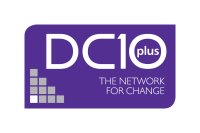Flying on the DC10plus
 The last 2 weeks yer ‘umble scribe has been to 2 events organised by DC10plus, a collaborative project that has grown up between the finalists (Bristol, Birmingham and Shropshire, Ealing, Hull, Norfolk, Nottingham, Manchester, Milton Keynes, Stratford on Avon and Sunderland) of the Government’s Digital Challenge, who have formed an alliance to spend £2 million of funding to increase digital inclusion and stimulate innovation, amongst other things.
The last 2 weeks yer ‘umble scribe has been to 2 events organised by DC10plus, a collaborative project that has grown up between the finalists (Bristol, Birmingham and Shropshire, Ealing, Hull, Norfolk, Nottingham, Manchester, Milton Keynes, Stratford on Avon and Sunderland) of the Government’s Digital Challenge, who have formed an alliance to spend £2 million of funding to increase digital inclusion and stimulate innovation, amongst other things.
On 3rd June Connecting Bristol‘s Kevin O’ Malley and myself were up in Sunderland – winners of the Digital Challenge – for Communities Building Capacity Practitioner Workshop, in essence a good chance to look at what they’ve been doing. Our first call of the day was the Wearside Community Development Trust centre in Southwick, where we had an introduction to the day including overviews of Sunderland City Council’s Community IT, e-Neighbourhoods, Electronic Village Halls, Community e-Champions, Community of Interest websites and a demonstration of Hexagon – a communication tool. Afterwards we all piled into a minibus for a visit in the rain to 2 electronic village halls – St David’s Community Project and the Jubilee Community Centre, ending up in Easington at the old Miners’ Institute, now given a new lease of life as a Community Access Point.
There are some very strong points to the work Sunderland is doing and what they are planning for the future (e.g. the use of wireless networking using mesh technology). Perhaps I was most impressed by the concept of the e-Champions, members of the local community who encourage others in their areas to make greater use of ICT. The best story we heard was of a ladies’ slimming club who ended up doing the full CLAIT programme; that wasn’t their intention but the IT room was the only one available for hire for their meetings! The Communities of Interest websites are another strong point – cheap to set up (£100) and maintain (£20 pa). The principal positive point was the emphasis on it being people that mattered – not the technology, the latter being just a means to an end. Sunderland’s programme is nevertheless heavily biased towards the use of proprietary software – not much evidence of free/open source and one of my concerns was that by teaching people in deprived communities to use expensive proprietary packages is that it might force people into the arms of your friendly local Jolly Roger software supplier. However, I do wish to thank all the people I met in Sunderland for their hospitality, friendliness and hard work in arranging such an interesting day.
This Wednesday just passed, the DC10plus Communities Building Capacity folks came to Bristol for a day-long session at Knowle West Media Centre‘s brand new building. Attendees at this event included parties from Sunderland, Ealing, Aston in Brimingham, Shropshire and Bristol. Andy Sabel and myself went along from Bristol Wireless to demonstrate free and open source software with our mobile LTSP suite running 6 thin clients and a couple of standalone laptops, including an old PIII running AntiX, a lightweight, but fully featured Linux distribution. While the delegates were busy with their morning session, Andy and myself were in the next door room setting up the suite. Facilitator Ed Mitchell gave us a spot at the end of the mid-morning break to introduce ourselves and to let people know we’d be showing off our wares at lunchtime.
Lunchtime duly arrived and Andy and myself had to nibble sandwiches between talking to our steady stream of visitors, whose tech knowledge varied from none at all to IT professionals. I believe we had people from all the delegations come to see us and experience using free and open source software, such as the GIMP image editor and the Open Office suite. Included in our kit was the power meter, enabling us to demonstrate how LTSP could save on energy bills (under 200 watts for the LTSP suite) – an important consideration these days given the trend in electricity prices. The AntiX laptop demonstrated how old hardware can be given a new lease of life and avoid the usual upgrade cycle common with some operating systems that require new, more powerful hardware just to do the same old jobs. We also gave out live CDs, which we hope are now being put to good use.
Finally, our thanks go out to Kevin of Connecting Bristol for assisting us in attending these 2 events.

Hi Woodsy, nice write up of the events!